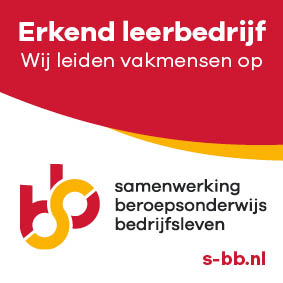The government wants companies to use energy as efficiently as possible. Therefore, the energy saving obligation for companies with high energy consumption. This means that companies must implement energy-saving measures that are within recoupable in five years.
To check whether companies comply with this obligation, the information obligation energy savings introduced. This means companies have to report once every four years what energy-saving measures they have taken. This is done via the Rijksdienst voor Ondernemend Nederland (RVO).
Does your company fall under this obligation? What measures are mandatory? And how do you make sure you comply with the legislation? In this blog, you will read all about the energy saving information obligation and how Shift to Solar helps companies take energy-saving measures.
To which companies does the energy saving information obligation apply?
The disclosure requirement applies to companies and institutions that annually:
- More than 50,000 kWh of electricity consume.
- More than 25,000 m³ of natural gas use.
As a result, medium-sized and large organisations in particular are covered by this scheme. This includes:
Do you doubt whether your company has to report? You can easily check on the website of the RFO.
Which measures are mandatory?
The government has a list of energy-saving measures that companies must implement if they are within can be recovered in five years. This is called the Recognised Energy Conservation Measures List (EML).
Common measures are:
- LED lighting - Uses less power and has a longer lifespan.
- Insulation - Limits heat loss through roofs, walls and windows.
- Smart thermostats and heating systems - Optimise energy consumption.
- Solar panels - Generate renewable energy and reduce mains power consumption.
- Energy storage - Allows generated solar energy to be used later.
- Charging posts - Provides a smart way to charge electric vehicles.
By applying these measures, a company saves on energy costs and complies with legal requirements.
How do you fulfil the duty to inform?
To comply with the disclosure requirement, you must submit a report through the eLoket of the RFO. This process repeats itself every four years and proceeds in five steps:
- Check whether your company is subject to reporting requirements.
Do you consume more than 50,000 kWh of electricity or 25,000 m³ gas? Then you should report.
- Map energy-saving measures.
See which measures your company has already implemented and which are still open.
- Submit the report to the RFO.
This is done through the eLoket. In it, you indicate which measures have been taken and which are still planned.
- Implement additional measures.
Does the report show that your company is not yet fully compliant? Then additional measures must be taken.
- Prepare for possible checks.
The government checks whether companies comply with the rules. Failure to report can lead to fines.
By taking energy-saving measures in time and registering them correctly, you will avoid problems and comply with the law.
How does Shift to Solar help companies comply with the information obligation?
To comply with the information obligation, companies must demonstrate that they have taken energy-saving measures. Shift to Solar helps companies with smart energy solutions that contribute to reduced energy consumption and sustainability.
With our solutions, you save directly on energy costs and work towards a future-proof business.
Renewable energy solutions from Shift to Solar
✔ Solar panels - Reduce power consumption by generating your own energy.
✔ Battery storage - Store generated solar energy and use it when needed.
✔ Smart charging stations - Charge electric vehicles with solar energy and avoid peak loads.
Our solutions not only help companies make their energy consumption more sustainable, but also ensure they comply with legal obligations.
What subsidies and schemes are available?
Companies that invest in energy saving can avail of financial benefits. This makes conservation not only necessary, but also attractive.
- EIA (Energy Investment Allowance) - Up to 45.5% of investment costs tax deductible.
- SDE++ subsidy - Encouraging renewable energy production.
- ISDE (Investment subsidy for sustainable energy) - Available for heat pumps and solar water heaters.
- MIA/Vamil scheme - Extra tax breaks for environmentally friendly investments.
- Regional grants - Available through provinces and municipalities.
Shift to Solar helps companies apply for grants so that you take full advantage of available schemes.
Why take action now?
The deadline for the energy saving information obligation is approaching. Companies that fail to report on time or take insufficient measures could face fines.
By investing in energy conservation now, you will comply with the law and save on energy costs immediately.
Request a free consultation
Want to know what energy-saving measures your company can take? Shift to Solar helps you step by step.
✔ Advice on solar panels, battery storage and charging solutions.
✔ Installation of sustainable systems that contribute to a better energy label.
✔ Grant application support.
Get in touch and find out how your company can comply with the energy saving information obligation.








 Dutch
Dutch
 English
English